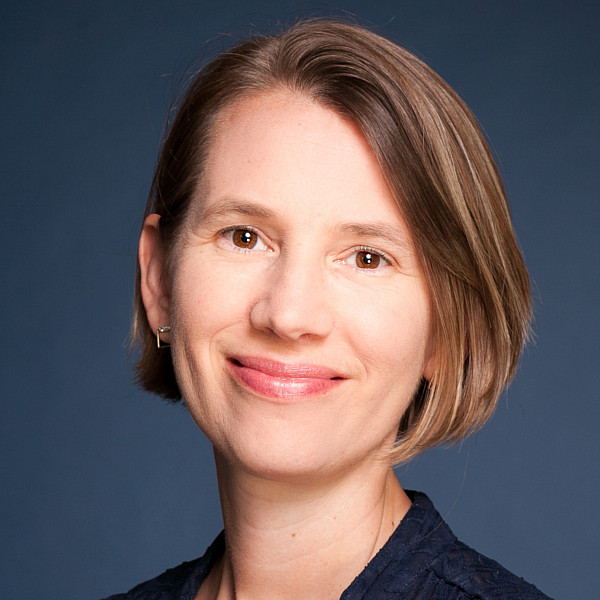News
Think Globally; Act Locally
December 10, 2020
December 10, 2020
Open gallery

“I would never have imagined as a student at Southwestern that I would ever in a zillion years be a farmer today… And I love it,” explains Katherine Tanner ’13 who graduated from SU with a degree in international studies and political science. These days, Tanner can be found working the fields and taking care of goats; overseeing account management, hiring, and marketing; and speaking at the annual Texas Organic Farmers and Gardeners Association (TOFGA) Conference as a representative of Hat & Heart Farm.
A multigenerational family farm in Fredericksburg, Texas, Hat & Heart began as a turkey farm in 1970, but today, it is home to goats, grape skins (an all-natural soil amendment), elephant garlic, and much more. Its produce and animal products are available in some of Austin’s most outstanding restaurants, like Odd Duck and Dai Due, at local farmer’s markets, and via membership in the Hat & Heart Farm Club, its newly launched community-supported agriculture (CSA) program. Hat & Heart has partnered with Texas A&M and the University of Oregon for research studies, and it uses sustainable, regenerative, and organic practices. And frankly, the tomatoes are delicious.

After returning home to Texas, Tanner met Ottmers while writing a magazine feature on the local food movement, and as the saying goes, the rest is history. Each season brings its own labors: fall means the beginning of kidding season (baby goats), winter means five-pound heads of cauliflower, spring brings beets and chard, and summer yields heirloom tomatoes of all shapes, sizes, and colors. An ordinary day on the farm is long and physically exhausting, but when COVID-19 forced all of Hat & Heart’s restaurant partners to close their doors and disrupted the weekly routine of selling directly to customers at farmer’s markets, the challenges of running a farm suddenly multiplied exponentially.
Like so many other businesses during this time, Hat & Heart had to learn and adapt practically overnight. And in just three days, it did. Prior to the outbreak of the pandemic, the farm didn’t have a CSA program, which allows customers to “subscribe” to a farm and receive weekly shares of fresh produce, eggs, and other goods. Beginning as early as the 1980s, CSAs have become an integral part of connecting farmers directly to the people who eat their food, a means of avoiding the pitfalls, pollutants, and other problems associated with today’s heavily industrialized and globalized food system. Participation in a CSA program is one way that people can “eat-locally-think-globally,” a movement in itself associated with the likes of Alice Waters, Joan Gussow, and Michael Pollan.
Launching a CSA program is no easy feat, especially with the increased need for health and safety measures as a result of COVID-19. However, Hat & Heart’s new business model was and still is a resounding success, and Tanner credits her ability to pivot the farm’s operations to her experiences at Southwestern that taught her how “to look at the whole picture” and see all dimensions of a problem instead of being “tunnel-visioned.” As a student at SU, Tanner was highly involved on campus—her activities ranged from participating in Model United Nations to planning campus events as a student worker in the events office—and she explains that being a part of the on-campus “buzz” in combination with her academic studies provided the “holistic feeling about education” that’s given her the ability to continue to learn, share what she’s learned with others, and problem-solve every single day. Professors like Alisa Gaunder, Shannon Mariotti, and David Olson made sure that Tanner “always felt supported in strange, out-of-the-box ideas,” and it’s these strange ideas that have helped Hat & Heart continue to adapt and grow.
While the outbreak of COVID-19 continues to devastate lives and businesses around the world, it’s also brought many important issues to the forefront, such as health, food security, sustainability, and the importance of caring for the environment, to name just a few. Not surprisingly, Hat & Heart stands out for its work in these areas; day-to-day operations on the farm abound with ingenuity and “strange ideas.”
The area surrounding Fredericksburg is home to numerous wineries, which generate an oft-forgotten waste product: grape skins. Rather than let them go to a landfill somewhere, Hat & Heart uses these leftovers to help prepare new fields for planting, as the acidity acts as a natural weed suppressant and the decomposing skins provide a food source for beneficial microbes in the soil. Instead of tarps, the farm lays old billboards over the soil and weighs them down with sand-filled feed bags rather than store-bought sand bags. Restaurant castoffs feed new growth, too. The farm uses a waste-oil heater to heat its greenhouses during the colder months, so Tanner picks up used fry oil from restaurants while she’s making deliveries. Each one of these innovations helps take the farm’s operations from local to hyperlocal—inputs and outputs travel between neighbors and friends, never farther than “just down the road”—and creates a self-sustaining, regenerative system wherein waste products literally beget new life.
As any entrepreneur will tell you, there is a steep learning curve associated with running a business, and at times, the unknowns seem to outnumber the knowns to an overwhelming degree. Tanner’s ability to learn and articulate what she’s learned allowed her to adapt and pivot even before COVID-19. The eggs are local, but Tanner’s perspective crosses geographic and cultural boundaries, and she’s eager to find new ways to reduce Hat & Heart’s inputs, embrace even more holistic and regenerative farming practices, and continue to bring all aspects of the food system closer to home and the community of customers who have come to appreciate the taste of a freshly picked watermelon radish or the lucid red and white stripes of a chioggia beet. Hat & Heart is a vibrant, budding node within a tight-knit community of loyal customers, restaurants, and other farms that simultaneously thinks of itself and beyond itself, just as Tanner learned to do as a Southwestern student. There’s even a gas station on the farm, so Tanner, Ottmers, and the other members of the Hat & Heart team aren’t obligated to engage much with the outside world, but they greet customers every weekend at markets and deliver their own produce, fully embracing the power and beauty of connectivity.
“It has been the most rewarding thing—to feel like I’m earning an entirely new degree in agriculture, just by doing and reading.”
Thinking about all of the work that each farm day brings, Tanner confesses that at times, it’s easy to keep her head bent down over the next row of onions to be picked or another work-related book. Pausing to reflect on all that’s been accomplished and to take in the surrounding environment with gratitude sometimes requires a little extra effort, but it’s helped along by an open and all-inclusive perspective. Her work goes beyond eat-locally-think-globally; she acts locally each day with both the surrounding community and global food systems in mind, indicative of a balanced yet innovative outlook traceable to her time spent abroad, her years at Southwestern, and her dedication to remaining a student no matter how much she’s already learned along the way.
“It has been the most rewarding thing—to feel like I’m earning an entirely new degree in agriculture, just by doing and reading,” she shares. “I am studying again and finally putting that to work in new applications, and I’m really excited to fold back in more international relations and political science themes into my daily life—to start looking at ways of educating people about how same or different farms are around the world and how those small farms impact the much bigger picture.”
















